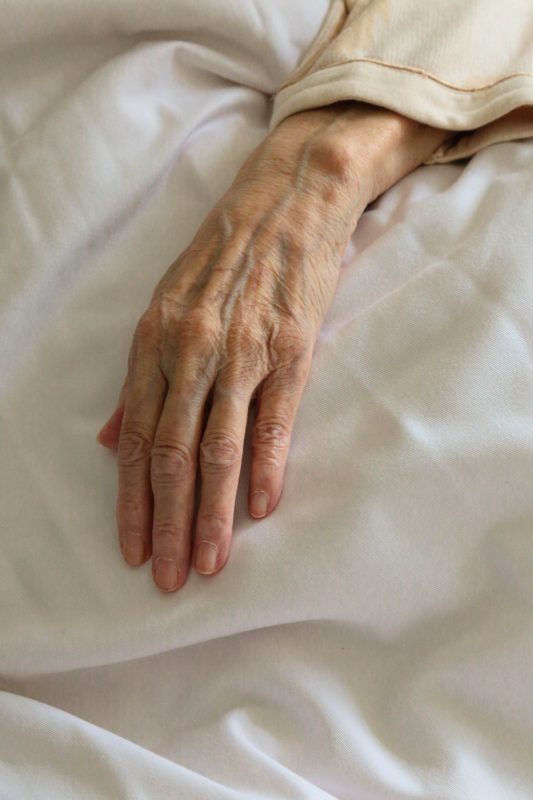
Planning for end of life care can be wrought with emotion and questions. Everyone’s decision will be different, based on their unique situation.
What Is End Of Life Care?
End of life care is care given to someone who is near the end of life and has decided to stop treatment that could cure or control their disease. It is sometimes called comfort care and can include palliative care, supportive care, and/or hospice care.
What Does End of Life Care Include?
Every situation is different, which means that everyone’s care is different. Some people might need palliative care. Others might only need hospice care. Understanding what each type is can help you as you and your family navigate this time of life.
Simply put, palliative care means medical care. This might apply to someone who suffers from cancer, or from heart failure. Palliative care means that medical professionals are giving them treatment and helping them understand their diagnosis and the medical options available to them.
Supportive care includes any type of care that supports a person in totality. This means it can include medical care, emotional support, social support, or spiritual support. Examples of supportive care can include nutrition counseling, therapy, pain management, somatic therapy, meditation, and music therapy.
Hospice care focuses on compassionate care for people in the last stage of life. Hospice care affirms life and tries to make this difficult stage as comfortable as possible, but it does not act to either hasten or postpone death. Hospice care typically begins when it’s clear that a person’s disease can no longer be treated.
Most often there is a team of individuals that offer end of life care. A team might include a physician, a therapist, a physical therapist, clergy, or dietician. End of life care can and should be tailored to a person’s specific needs, so a team should be assembled based specifically on those needs.
Family is often involved as well, especially in hospice care.
5 Things to Consider When Planning End of Life Care
What Does Your Loved One Need? End of life care is a combination of physical care, mental and emotional support, spiritual needs, and help with practical tasks. It’s vital to understand your loved one’s wishes when it comes to end of life care. This is an important time to ask questions: do they want to spend as much time at home as possible? Do they need help with daily tasks, such as personal hygiene or mobility? Would time with clergy or a therapist bring them comfort?
If at all possible, it’s beneficial to start having these conversations before there is a need for end of life care. Understanding what your loved one needs and being able to plan for that care can lessen the stress of an already stressful time of life.
Has Your Loved One Created End of Life Documents? It can be an awkward subject to broach, but knowing if your loved one has created documents that cover the legal, financial, and sentimental aspects of end of life can help simplify the process of obtaining care and assembling the best team.
Some documents that professionals advise having include a will, a revocable living trust, a durable power of attorney, a living will, and DNR forms, among others. If your loved one has pre-planned their funeral, knowing who has that information and how to access it can be helpful when it’s necessary. Similarly, it’s important to know if your loved one has set up their online social media accounts in a way that you can access.
Do You Understand What Might Happen? Not everyone experiences pain at the end of life, but some do. Most medical professionals will offer remedies from pain in the form of drugs. While this can be a relief for your loved one, it might change their behavior. They may become irritable, or unable to communicate. They may sleep more.
Others might experience shortness of breath or an increased ability to breathe consistently. Some people might suffer from skin irritation or dryness. Being more sensitive to temperatures can also be an issue, as can fatigue and digestive problems.
These physical manifestations are different for everyone. And while they’re obviously difficult for the person experiencing them, they’re also difficult for family and friends. It’s hard to watch someone you love suffer. It can also be harder if we don’t understand what’s happening.
End of care providers generally offer care to the family. While they’re primarily focused on the patient, they can also guide you and help you understand what’s happening to your loved one. You might also seek the expertise of medical professionals before your loved one reaches this stage. Remembering that it’s ok to ask for help is an important part of this process.
Have You Considered the Whole Person? It’s sometimes easy to hyper focus on the physical when a loved one is terminally ill or dying. But end of life care is more than physical, medical care. It’s also support for a person’s mental and emotional health as well as their spiritual health.
Understanding that your loved one might need a safe place to process the intense feelings that can come with end of life issues. That might mean speaking with clergy or another religious advisor. Or it might mean time with a therapist. It might also be something simple, like playing music or keeping cherished photographs close or providing physical reassurance, like holding hands.
Can You Be Present? Sometimes the hardest thing is to be present with your dying loved one. But this can also be the most important thing you can do. If your loved one is able and wants to talk, being attentive and engaged is important. If they can participate in decisions and plans, that’s also vital. If they’re able to communicate, ask them what they need or want. Even if they can’t speak, if they can listen, let them hear your voice. Share memories or talk about the weather or read them a book. Chances are what you say won’t matter; but being there will.
Bateman-Allen Funeral Home is always here as a resource for you as you face these challenging times of life. Please reach out if we can be of service.




Recent Comments